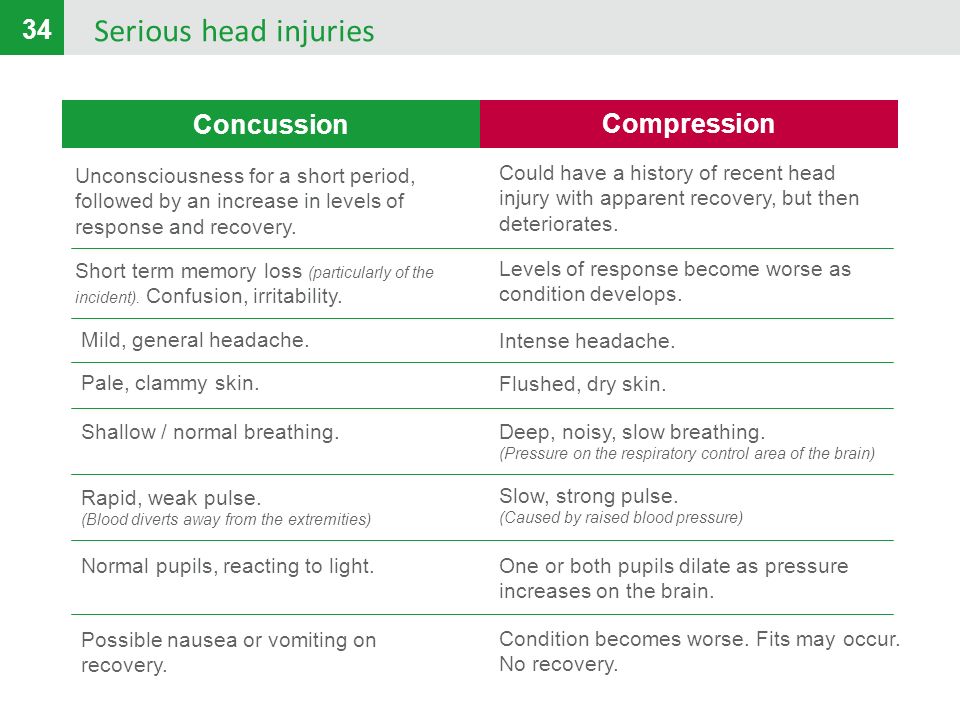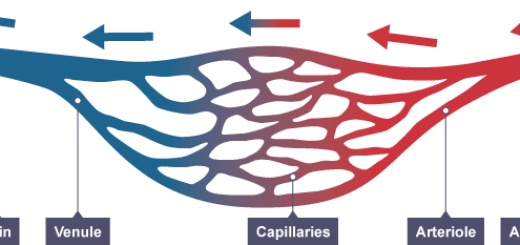Head injuries: concussion vs compression
Head injuries are a common and potentially life-threatening. It is important for first aiders to be able to recognize the signs and symptoms of a serious head injury and seek early medical advice.
In the United States, head trauma is implicated in around 50,000 deaths per year and generates nearly 3 million emergency department visits (Source: CDC).
There are many different sub-categories of traumatic head injury. In first aid, we broadly split these into two major categories:
Concussion: A temporary injury to the brain
Compression: A serious, life-threatening, progressive injury affecting the brain often due to either a bleed into the brain or brain tissue swelling.
The following table outlines the key differences between concussion and compression:

The key feature of compression is that the patient will deteriorate, often rapidly. On the other hand, patients with a concussion will recover.
Compression is life-threatening due to the build up of pressure in the skull. A bleed into the brain causes a build up of pressure. The skull is a rigid structure made of bone and will not allow expansion. Therefore the blood causes the brain tissue to become compressed.
It is important to remember that both types of head injury can occur. For example, a blow to the head may result in a concussion from which the patient recovers, however, several hours later they deteriorate due to a compression head injury.
Patients with a compression head injury need an urgent scan and potentially surgery. Therefore do not delay in calling for emergency medical help when a serious head injury occurs. The longer the time period, the more brain tissue will be damaged leading to potentially life-long disability – “Time is brain“.





